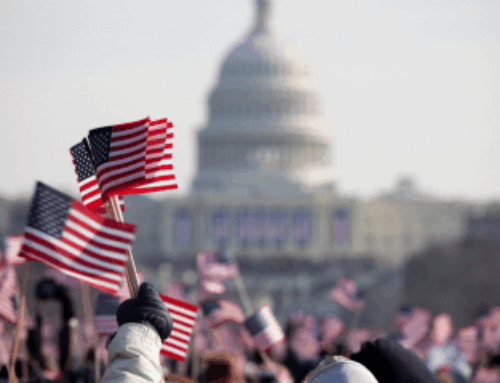 Dear Colleague,
Dear Colleague,
Over the last few months, I have had the proud honor to serve as the Vice Chairman for the American Academy of Sleep Medicine Political Action Committee (AASM PAC). As I watch the future of new regulations, guidelines, and reimbursement issues, I have become passionate about the need to have effective voices advocating on behalf of the field of sleep medicine.
As one of your advocates, I frequently venture to Washington D.C. to meet with our elected representatives and executive branch officials to discuss the sleep medicine issues that impact our field, our practices, and us personally, like Medicare coverage decisions and the impact of the Stark Law on sleep medicine. Together, we have made significant strides in raising the awareness of sleep disorders on Capitol Hill.
With Veterans Day occurring on Friday, November 11, I am reminded of our efforts to sound the alarm regarding sleep disorders and our returning military personnel who have proudly served this great nation during times of conflict and times of peace. These brave men and women have risked their lives on our behalf and, only recently, have researchers been able to document the profound impact military service has had on their quality of life. In fact, researchers have uncovered significant behavioral and physiological changes that serving in the Armed Forces can have on an individual’s long-term health, specifically the quality of their sleep.
As research into health problems facing our military personnel continues, the AASM has been at the forefront of advocating about specific sleep health issues directly impacting soldiers returning from duty. This past June, Dr. David Kuhlmann, the AASM PAC Chairman, and I traveled with staff to Capitol Hill to advocate before Members of Congress for a resolution addressing the high rates of Post-Traumatic Stress Disorder (PTSD) and other complications facing our veterans. On July, 13, our advocacy efforts were successful when Representative Sam Graves of Missouri introduced House Resolution 825 (H. Res. 825) recognizing the increased risk of sleep apnea among soldiers returning from active duty and the benefits of continuous positive airway pressure (CPAP) therapy on treating obstructive sleep apnea (OSA) in soldiers suffering from PTSD.
In communications to his colleagues, Representative Graves stresses his hope that “we can find solutions to this very real problem and begin providing our veterans with the resources needed to curb the effects of PTSD. Our soldiers bravely sacrifice so much to protect our freedoms, the least we can do is give them everything they need to lead healthy, successful lives once they come home.” As a nation, we must continue to follow Representative Graves’ actions to raise public awareness of the danger sleep apnea poses for our military personnel and veterans, while encouraging the Federal government to provide access to care for military personnel and veterans with sleep illnesses. In addition, I hope Congress will continue to authorize the research needed to further explore CPAP therapy as a viable treatment for OSA in patients with PTSD. Therefore, I ask you to join me in supporting House Resolution 825 by submitting a letter requesting your Representative or Senator to cosponsor this important initiative.
Finally, I wanted to discuss our recent advocacy efforts in order to highlight the importance of the AASM Political Action Committee. Contributing to the AASM PAC is vital if we are to overcome potential hurdles which impact sleep medicine. There is strength in numbers, and the PAC allows us to pool our individual resources and influence public policy. Our elected representatives place a high value on member participation in advocacy. I ask you to consider contributing to the AASM PAC as part of renewing your annual AASM membership. By participating in the AASM PAC, you will join hundreds of providers nationwide in influencing the future of the field of sleep medicine.
I thank you in advance for your generosity and support. If you would like further information on the AASM advocacy initiative, please contact the AASM Government Relations and Health Policy Department at policy@aasm.org.
Sincerely,
Mark Hickey, MD
AASM PAC Vice-Chair



